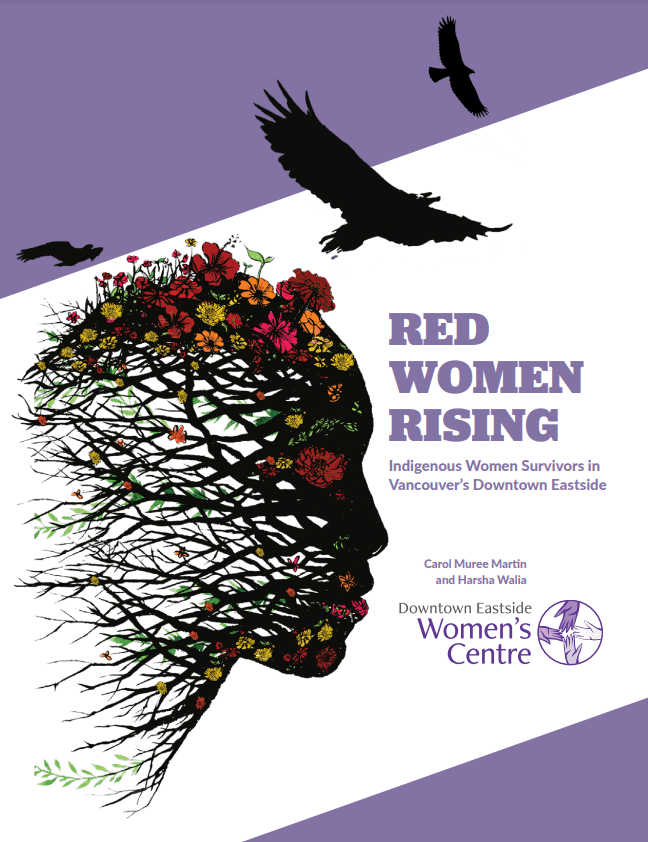18 search results
for
Living in urban communities
Legislative reform to reduce Indigenous women’s manufactured vulnerability
Recommendation 8: End the policing practice of street checks; reduce the number of bylaw infraction tickets issued by police in the DTES; prohibit police from carrying and using all lethal weapons; develop guidelines to facilitate greater use of police discretion not to lay charges especially for minor poverty-related offences; and end the counter-charging and criminalization of Indigenous women who defend themselves or their children.-
Category and theme:
Immediate services needed in the DTES
Recommendation 16: At least one multipurpose Indigenous Women’s Centre in the DTES that is run by and for Indigenous women with long-term funding and wrap-around supports including healing support, communal kitchen, child care facility, elder accompaniment, artisan training and vending, and 24/7 educational, cultural, recreational, and empowerment-based programming to bring Indigenous women together collectively. This would also serve as a single point of access to connect to integrated services.-
Category and theme:
Audience:
Groups affected:
Immediate services needed in the DTES
Recommendation 18: An Indigenous Health and Wellness Centre in the DTES and Indigenous-run health programs that use Indigenous methods to address physical, mental, sexual, emotional, and spiritual harms. Also fund more mobile healthcare vans and community-based clinics, street nurses, and healthcare providers in the DTES.-
Category and theme:
Audience:
Immediate services needed in the DTES
Recommendation 19: Guarantee access to affordable, healthy, and nutritious foods especially fruits, vegetables, and meats in the DTES. This means more community gardens, food banks, nonprofit grocery stores, and providing discount cards for regular super markets.-
Category and theme:
Audience:
Groups affected:
Immediate services needed in the DTES
Recommendation 20: Expand non-policing options for publicly intoxicated people, including civilian-operated 24/7 sobering centres providing appropriate care for Indigenous women.-
Category and theme:
Audience:
Groups affected:
Immediate services needed in the DTES
Recommendation 21: Rapid easy access to Indigenous women’s detox-on-demand where there is no time limit; Indigenous-run treatment centres; indoor overdose prevention sites and consumption sites for Indigenous women only; access to safer drug supply; and full spectrum of substitution treatment options.-
Category and theme:
Audience:
Immediate services needed in the DTES
Recommendation 22: Guarantee a 24/7 Indigenous mental health and addictions counselling program that is low-barrier, drop-in based, available on demand, and includes overnight street-based counselling in the DTES. Also ensure long-term mental health and addiction services, ranging from prevention, early intervention, treatment, crisis care, home visits, and aftercare.-
Category and theme:
Audience:
Immediate services needed in the DTES
Recommendation 23: Fund an Indigenous legal clinic in the DTES that can support Indigenous women in all criminal and civil legal matters including but not limited to family, criminal, mental health, and poverty law issues.-
Category and theme:
Audience:
Immediate services needed in the DTES
Recommendation 24: Fund a Bear Clan Patrol in the DTES that is led by Indigenous residents and based on Indigenous reciprocal responsibilities of safety, security, and kinship.-
Category and theme:
Audience:
Groups affected:
Immediate services needed in the DTES
Recommendation 25: Provide a free medical accompaniment program where women are guaranteed rides and an accompaniment advocate for all medical appointments.-
Category and theme:
Audience:
Groups affected:
